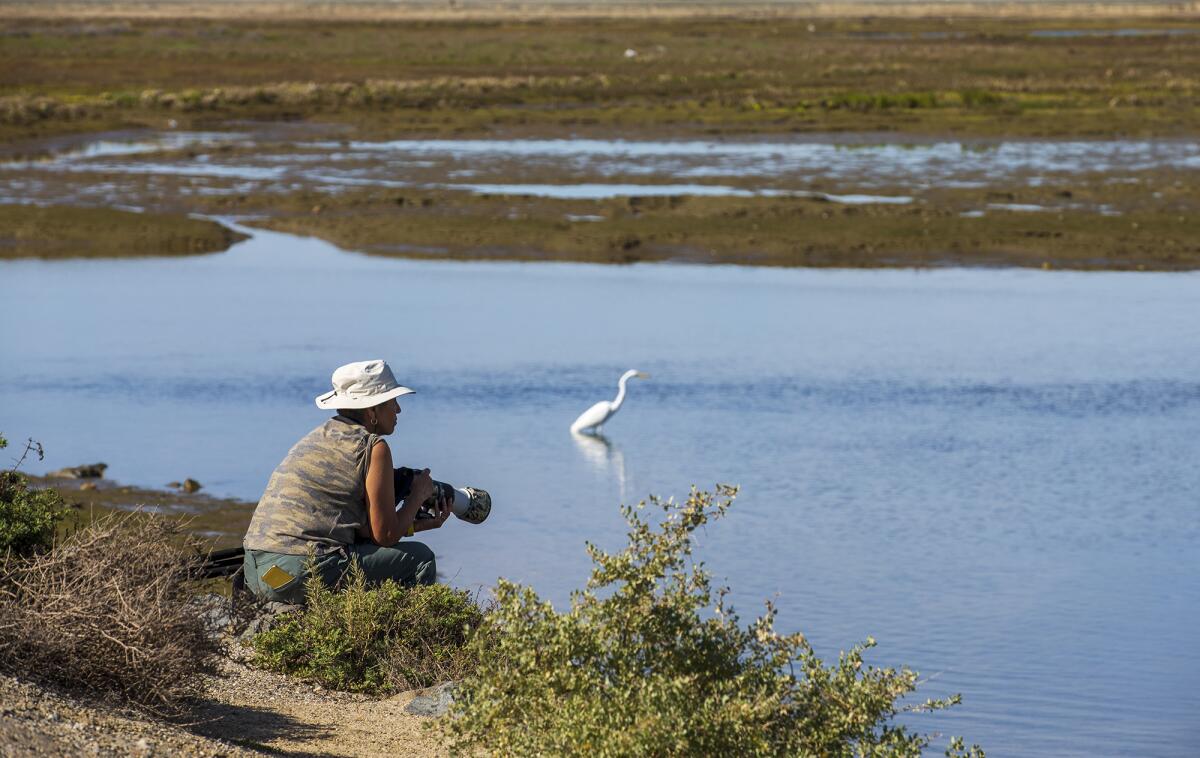Petition submitted to state to authorize research and restoration in O.C.’s protected marine areas

- Share via
Expansion of research and restoration projects to Orange County’s marine protected areas (MPAs) may be on the horizon, depending on action taken by the state’s California Fish and Game Commission in response to a petition submitted by OC Coastkeeper.
The nonprofit announced Monday its petition to Fish and Game requesting it “authorize and support credible research, monitoring, restoration and education projects within Orange County’s MPAs.”
For the record:
11:45 a.m. Dec. 11, 2023An earlier version of this story incorrectly reported the petition sought the redesignation of two marine protected areas to be off limits to the general public. No MPAs can be off limits to the general public, nor does OC Coastkeeper’s petition state that request.
The move comes as part of a routine 10-year review of policies guarding marine protected areas up and down the coast.
Ray Hiemstra, OC Coastkeeper’s associate director of policy and projects, said he was present when talks first came about to establish networks of protected areas. He said the original intention had always been to allow research and restoration in the designated places but that legal language inserted later did not reflect that goal.
The originally intended language only carried into documentation surrounding Upper Newport Bay, where the organization and other nonprofits and scientific agencies have been conducting research and other restoration projects for some time.
But it was not reflected in the six other MPAs along Orange County’s 42-mile coastline: the Bolsa Basin, the Bolsa Bay, Crystal Cove, Dana Point and Laguna Beach.
“Orange County’s MPAs safeguard all rocky intertidal and reef habitats, providing a sanctuary for marine life,” the nonprofit states on its website. “However, this protection has inadvertently limited areas available for scientific study, hindering researchers’ ability to gather essential data.”
Although applications could be submitted for project permits, there would be delays on granting those that came from people such as graduate students trying to conduct their research or groups like Get Inspired, founded by marine biologist Nancy Caruso, to do abalone restoration.
“[Caruso] and lots of other people have been having a hard time getting permits. She had to get state legislation passed that clarified that you could do these activities in state marine conservation areas, but without the specific wording, there’s reluctance. We’re trying to patch every single hole,” Hiemstra said. “These sound small, but they’re a big deal. For doing scientific collection or just monitoring, it can take a very long time.
“If you’re a graduate student and you’re having trouble [getting a permit], that could end up prolonging your schooling and cost you a bunch of money. We’re not saying they shouldn’t do their due diligence, but we want them to keep their word, and we’re supposed to be able to do education, restoration and research projects.”
As part of the petition, OC Coastkeeper also requested clarification for the definition of tide pools. Hiemstra floated ideas for seagrass restoration and removal of invasive seaweed species, particularly sargassum.
“Even though restoration is part of the possibilities, we’re not always looking to do that. We understand there are places where we just need to let nature take its course, whatever that is,” Hiemstra said.
The commission is expected to respond to the nonprofit in 2024.
All the latest on Orange County from Orange County.
Get our free TimesOC newsletter.
You may occasionally receive promotional content from the Daily Pilot.




